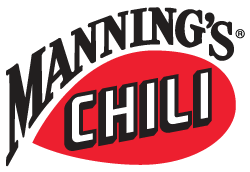MSN - Plan calls for Wichita to spend $31 million paving dirt roads over the next 10 years
I didn't realize that Wichita still had some dirt roads. Guessing they're mostly on the south side, since I spend very little time over there.
Oct. 18—The city of Wichita will spend $1 million paving dirt roads around schools in 2023.
The City Council on Tuesday approved year one of a 10-year capital improvement plan to fund $31 million of paving projects near schools and in disadvantaged neighborhoods.
Public Works and Utilities Director Alan King said 160 of the 5,100 lane miles managed by his department are dirt roads.
"We have these islands within the city, within neighborhoods, of unpaved roads," King told council members. "The historical approach to this has been to have petitions circulated and then the cost of those streets are borne by the people on that street."
That petition process can be contentious and cumbersome, Plainview Neighborhood Association President Chauncey Kemp told The Eagle in June. Several years ago, he organized a petition asking the city to lay new asphalt and gravel in Planeview cul-de-sacs.
"They came out to a meeting and told us that they could do that but in order for them to do that cost-effective, we would have to put our property on a levy at eight grand — I think it was $8,600 bucks, each piece of property at $8,600 bucks in order for them to do it," Kemp said.
King said the 10-year city paving initiative will remove those barriers for neighborhoods that have been unable or unwilling to bear the cost of modernizing roads. Each year of the plan will have to be approved by the City Council.
The City Council on Tuesday approved year one of a 10-year capital improvement plan to fund $31 million of paving projects near schools and in disadvantaged neighborhoods.
Public Works and Utilities Director Alan King said 160 of the 5,100 lane miles managed by his department are dirt roads.
"We have these islands within the city, within neighborhoods, of unpaved roads," King told council members. "The historical approach to this has been to have petitions circulated and then the cost of those streets are borne by the people on that street."
That petition process can be contentious and cumbersome, Plainview Neighborhood Association President Chauncey Kemp told The Eagle in June. Several years ago, he organized a petition asking the city to lay new asphalt and gravel in Planeview cul-de-sacs.
"They came out to a meeting and told us that they could do that but in order for them to do that cost-effective, we would have to put our property on a levy at eight grand — I think it was $8,600 bucks, each piece of property at $8,600 bucks in order for them to do it," Kemp said.
King said the 10-year city paving initiative will remove those barriers for neighborhoods that have been unable or unwilling to bear the cost of modernizing roads. Each year of the plan will have to be approved by the City Council.






Comment